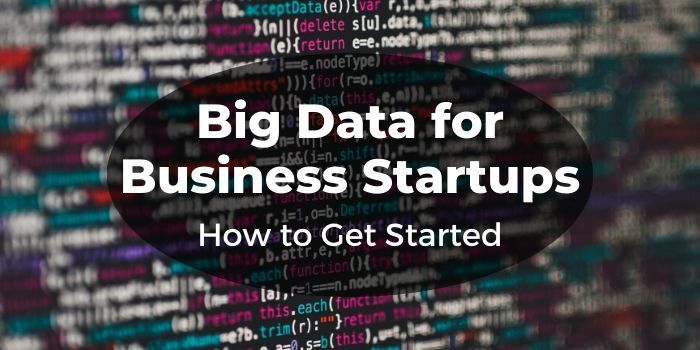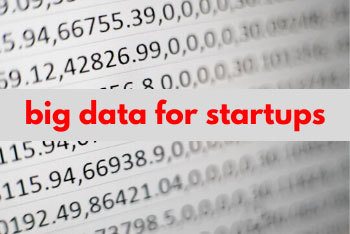We all know that leveraging big data is akin to mastering a vital tool for success. Particularly for overweight business owners like me, this can resonate on a personal level. The concept of big data might initially seem daunting, much like the journey of managing one's weight. But just as understanding and embracing one's health journey can lead to personal empowerment, harnessing the power of big data can unlock tremendous potential for your business.
Big data isn't just a buzzword; it's a transformative force. It allows you to analyze trends, understand customer behaviors, and make informed decisions. Imagine applying the same principles you use in managing your weight—such as tracking progress, identifying patterns, and making adjustments based on insights—to your business strategies. This approach can lead to more personalized customer experiences, improved operational efficiency, and increased profitability.
For overweight business owners, there's an added layer of understanding. You know that success doesn't come from quick fixes but from consistent effort and adapting strategies based on real-world data. Big data provides the opportunity to do just that in your business: to make data-driven decisions that lead to sustainable growth and success, mirroring the journey in personal health and well-being.

What Is Big Data?
Big data could be defined as a considerable amount of information, which keeps growing. One of the main features is that it is very complicated and extensive. None of the traditional management tools could be applied to collect, store, and use such info efficiently.
The importance of information is not in the amount you have but the way you use it to increase your business efficiency. Moreover, it could be taken out of any sources or channels.
The appropriate big data analysis helps in predicting customers' behavior and interests, establishing proper targeting, assessing potential risks, and optimizing operating workflow.
Big Data: Just for the Big Players?
So, when we talk about big data, we often think it's a playground for the big guns, right? The massive corporations with resources that seem endless. But let's be real here, is it really just for them?
First off, big data sounds intimidating, doesn't it? It conjures images of rooms full of servers, data scientists crunching numbers, and costs spiraling out of control. You'd think you need a Scrooge McDuck-style money vault to even get started. But here's the twist – it's not necessarily the case.
Let's look at the examples.
The Misconception: Size Matters
There’s this common belief that big data is like a members-only club where only the companies with the biggest wallets and teams can play. But guess what? That's not entirely true. Sure, big companies have an advantage with more data, more resources, and more people. But let's not forget, size isn't everything, right?
Smaller businesses can get in on the action too. They might not have the same volume of data, but they have something just as valuable – agility. Smaller businesses can pivot and adapt way quicker than the behemoths. They can take a nugget of data insight and run with it fast. Isn't that an edge in itself?
Cancel Culture
So, cancel culture has been a hot topic lately, hasn't it? It's like everywhere you turn, someone's getting "canceled." But let's dive into some statistics to get a clearer picture. A 2020 Pew Research Center survey found that 44% of Americans had heard a lot about cancel culture, with opinions divided on its impact. Interestingly, younger adults were more likely to view it positively. That says something about generational perspectives, right?

The concept of cancel culture revolves around boycotting or calling out individuals or companies after they’ve done or said something considered offensive. It’s like social media has given everyone a megaphone to air grievances, for better or worse. You’ve probably seen how a single tweet can spiral into a trending hashtag calling for a cancellation.
Now, talking about the effects, a 2021 survey by Ipsos showed that 27% of Americans had changed an opinion about an issue because of cancel culture. This could mean people are listening, right? But there's also the argument that it stifles free speech.
A Cato Institute survey found that 62% of Americans say the political climate prevents them from saying things they believe because others might find them offensive. That’s quite a number, isn’t it?
On the flip side, cancel culture can hold people accountable. Remember the #MeToo movement? It started as a hashtag and grew into a global movement against sexual harassment and assault. This shows how powerful social media can be in highlighting issues that were previously swept under the rug.
But, there’s also the concern about false accusations and the lack of due process. It's tricky, right? One misinterpreted tweet, and you could be on the receiving end of a digital witch hunt. The consequences can be severe - loss of reputation, career damage, and mental health impacts. You've seen celebrities and ordinary folks alike getting "canceled" over past mistakes or out-of-context comments.
So, where does this leave us? Cancel culture certainly has its pros and cons. It’s brought attention to serious issues and given a voice to those who might have been ignored before. But it’s also raised questions about fairness and the rush to judgment. It’s a bit of a double-edged sword, don’t you think?
In the end, it seems like the debate around cancel culture isn’t going anywhere soon. It's part of our evolving digital landscape, reflecting the power of social media in shaping public opinion. It's about finding that balance between accountability and forgiveness, a challenge in today's fast-paced, online world.
How to Use Big Data for Startups?

If you are planning to start a new business in the nearest future, you have to determine all cases of failures that may take place in the industry.
There are a few steps to follow in order to get benefits from big data volumes.
Strategy
When using big data in startups, especially for overweight individuals, the strategy is all about personalization, right? It's about understanding your specific needs and challenges.
Startups can use big data to identify patterns and preferences unique to overweight customers. This could be in product design, marketing, or even creating personalized health and wellness plans. It's like tailoring your business approach to fit like a glove, making sure it resonates with your target audience. Isn’t that a smart way to stand out?
First, identify possible ways you can use to get, store, use, share, and manage big data within and outside your company. An efficient strategy allows determining future goals and levels of success.
Big Data Sources
Now, where do you get this data? For insights into the overweight demographic, you’re looking at health apps, wellness trackers, and even online forums where people share their experiences. These sources are goldmines of information on lifestyle habits, challenges, and preferences.
Think about it – every app interaction or forum post is a piece of the puzzle, giving you a clearer picture of what your overweight customers need and want.
The key strength is not the level of big data but its quality. That depends on the channels where your organization gets information. Consider the Internet of Things, social media, and public channels as the primary sources. But don't try to accumulate everything at once as you may get lost in the enormous amount of info.
Collect, Store and Manage

Modern technologies and software solutions allow getting access to information in a fast and simple way. Along with the storage of massive amounts of info, your business requires an appropriate control and management system for further analysis.
A lot of organizations use clouds to collect information about customers or suppliers. This way company may access the required info anywhere anytime and build a smooth and efficient workflow in- and outside the entity.
Collecting data is just the beginning, isn’t it? The real deal is storing and managing it in a way that’s both ethical and efficient. For data related to overweight individuals, privacy is key. You’ve got to ensure that the data is anonymized and secure. Then, organizing this data in a user-friendly system makes it easier to access and use. It’s about having the right tools to turn raw data into actionable insights.
Analysis
One of the most important steps in every business development is in-depth and detailed information analysis and visualization. In big data management, traditional analytical tools are ineffective and useless.
The startups could use Zoho Analytics, Microsoft Power BI, or SAS services for information investigation. In case the organization has experience in the marked and qualified analytics under the roof, it can turn to in-memory analytics or other advanced approaches for analysis and visualization of the available information.
By analyzing big data, startups can uncover trends and patterns specific to the overweight community. Maybe there's a preference for certain types of fitness activities or a trend in dietary choices. This analysis can then inform product development, marketing strategies, and even customer support services. It’s like decoding a secret language, and once you understand it, you can offer exactly what your customers need. Pretty cool, huh?
So, big data for startups targeting overweight people is all about understanding and catering to their unique needs. It's not just about the numbers; it’s about the stories they tell and the insights they provide. That's what makes big data so powerful, isn't that right, people?
For $299/year or $149/quarter
Thrive Suite Includes:
Recommended Alternative: Thrive Architect Plugin Only - $99 per year
The Reality: Tools for Everyone
Nowadays, there are tools out there that demystify big data. They're making it more accessible than ever. You don't need a PhD in data science to get started. There are platforms and services that do the heavy lifting, crunching big data into digestible insights. Isn't that as good as a big breakfast?
These tools have leveled the playing field. Small and medium-sized businesses can now tap into the power of big data without breaking the bank. They can analyze customer behavior, market trends, and even predict future demands. Who said you need to be a giant to be a data wizard?
The Catch: It's Not Just About Having Data
Here's the thing, though. Having access to data and tools is one part of the equation. The other part? Knowing what to do with it. It’s not just about collecting data willy-nilly. You’ve got to have a plan, don't you think?
It's like having a library at your disposal. If you don't know what books to read, it's just a room full of paper. The same goes for data. You need to know what questions to ask, what data to collect, and how to interpret it. That’s where the real magic happens.
The Bottom Line: Not a Size Game
So, to wrap this up, is big data just for the big players? Not at all. It's more about how you use it than how much of it you have. Smaller businesses might even have the upper hand with their nimbleness and ability to adapt quickly. Who knew, right?
Big data isn’t a behemoth's playground anymore. It's becoming a tool that businesses of all sizes can use to make smarter decisions. And that’s pretty exciting, isn’t it? Sure, it’s not all roses and sunshine; it takes work to make sense of all that data. But the possibilities? They're huge, no matter your business size. Don't you agree?
Big Data: A Different Kind of Weight to Carry

So, I've been thinking about how being overweight can feel a bit like dealing with big data. Sounds odd, right? But hear me out. Just like big data, carrying extra weight comes with its own set of challenges and misconceptions. And just like with big data, there's no one-size-fits-all solution.
The Misunderstood World of Weight
Now, when you're carrying extra pounds, people often assume it's all about willpower, or lack thereof. They don't see the whole picture, do they? It's like when folks oversimplify big data as just a bunch of numbers. Both weight and data have complexities and nuances that often go unnoticed.
And then there's the judgment. Oh, boy. Just like people can be snobby about 'proper' data analysis, there's a lot of judgment around weight. It's as if your worth is measured by your waistline or your ability to crunch numbers. Isn’t that frustrating?
Finding Comfort in Data
But here’s where it gets interesting. As someone who's not exactly on the slim side, I've found an unexpected ally in big data. You see, data doesn't judge. It just is. Whether it’s pounds on a scale or numbers on a screen, data tells a story without bias. Isn't that kind of refreshing?
I’ve started looking at my own weight journey as a data set. It’s not about good or bad; it’s about trends, patterns, and what they tell me about my lifestyle. Sometimes, the data shows a few extra pounds, and other times, it doesn't. But every bit of data gives me insight, and that's empowering, don’t you think?
The Power of Personalized Data
What's really cool is how personal data becomes. Everyone's weight journey and data journey is unique. Just like big data helps businesses tailor their strategies, tracking my own data helps me tailor my lifestyle. It's about finding what works for me, not what the latest diet trend dictates. That's liberating, right?
In this data-driven approach, I've learned to focus on small, measurable changes. It's not about the big, daunting goal of 'weight loss.' It's about the little shifts that can lead to big changes. It's similar to tweaking a business strategy based on data insights. Small steps, big impact.
Being Proud of the Data, Not the Judgment
The biggest takeaway? It's okay to be a work in progress, whether it's in managing big data or managing weight. Neither journey is linear. There are ups, downs, and plateaus. But that’s life, isn't it?
In both my data and weight journey, I've learned to focus less on judgment and more on understanding. It's not about fitting into a mold or a specific size. It’s about using data to understand myself better and make choices that suit me. Isn’t that a healthier approach?
So, in the end, being overweight and dealing with big data have a lot in common. Both are misunderstood, both have their challenges, but both offer unique opportunities for insight and growth. And that's something to be proud of, isn't it?

Author Bio: Melinda Pappardelle
Melinda, an innovative data enthusiast with a zest for life, brings a unique perspective to the tech world. She claims to "eat data for breakfast," reflecting her insatiable appetite for analytics. With a career spanning various industries, Melinda combines her expertise with a personal understanding of diversity and inclusion making her a voice in tech circles for her unconventional and refreshing approach.

i am visited this website daily.i liked it.i visit it daily.its stuff is very good.
Thanks for your comment. Let us know why you like this site and which “stuff” you find it good.